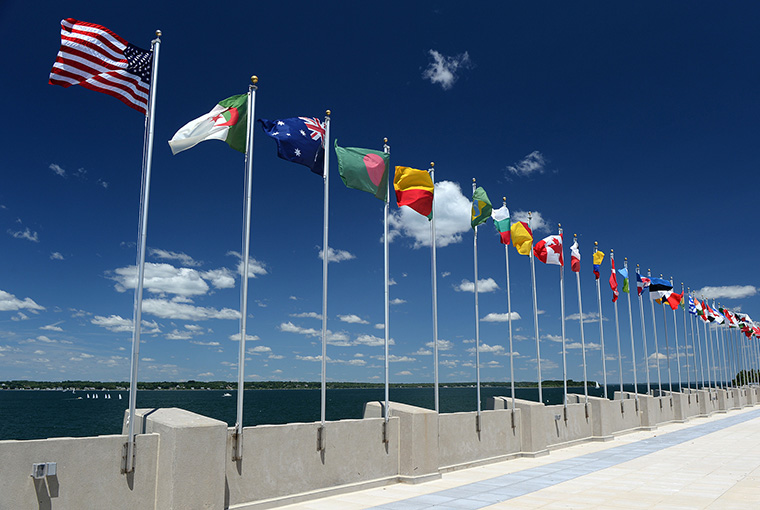U.S. Naval War College President, Faculty Speak at Symposium on Global Competition

The president of U.S. Naval War College and several faculty members spoke at a symposium in San Francisco on Saturday, March 23.
Called “The Return to Global Competition,” the event featured talks on the importance of military partnerships, the “deep state” and the impact of bureaucracy, ethics and decision-making, and the geopolitics of competing continental and maritime powers.
“There is no doubt that we live in an increasingly complex, global security environment, characterized by overt challenges to the free and open international order and the re-emergence of long-term, strategic competition between nations,” Rear Adm. Jeffrey Harley, Naval War College president, told the audience.
“These changes require a clear-eyed appraisal of the threats we face, acknowledgement of the changing character of warfare and a transformation of how the Navy conducts business,” Harley said.
Naval War College faculty and students work to address this complex landscape, Harley said. “The challenges we face as a nation and as a Navy are played out every day in the college’s classrooms, workshops, seminars and war games.”
Professor Sally Paine said it was a good chance to talk about the unique research taking place on the Newport campus.
“U.S. Naval War College is the only U.S. educational institution to study the nature and strategic implications of maritime power,” said Paine, whose research focuses on relations among China, Russia and Japan.
“It is crucial to make Americans aware of the maritime basis for global prosperity and U.S. national security.”
Derek Reveron, chair of the National Security Affairs Department, said he thinks this kind of event helps bridge the gap between academia and the public sphere.
“I can think of no better place than the Marines’ Memorial Club in San Francisco to discuss the Naval War College and pressing national security issues,” Reveron said.
Professors David A. Cooper and Albert J. Shimkus also spoke at the daylong symposium, which was sponsored by the Naval War College Foundation.
Since 1884, U.S. Naval War College has served as a place of original research on all questions relating to war. The institution educates and develops future leaders for the U.S. Navy and the other military services. More than 50,000 students have graduated since the first class of nine students in 1885, and hundreds of today’s active-duty admirals, generals and senior executive service leaders are alumni.
